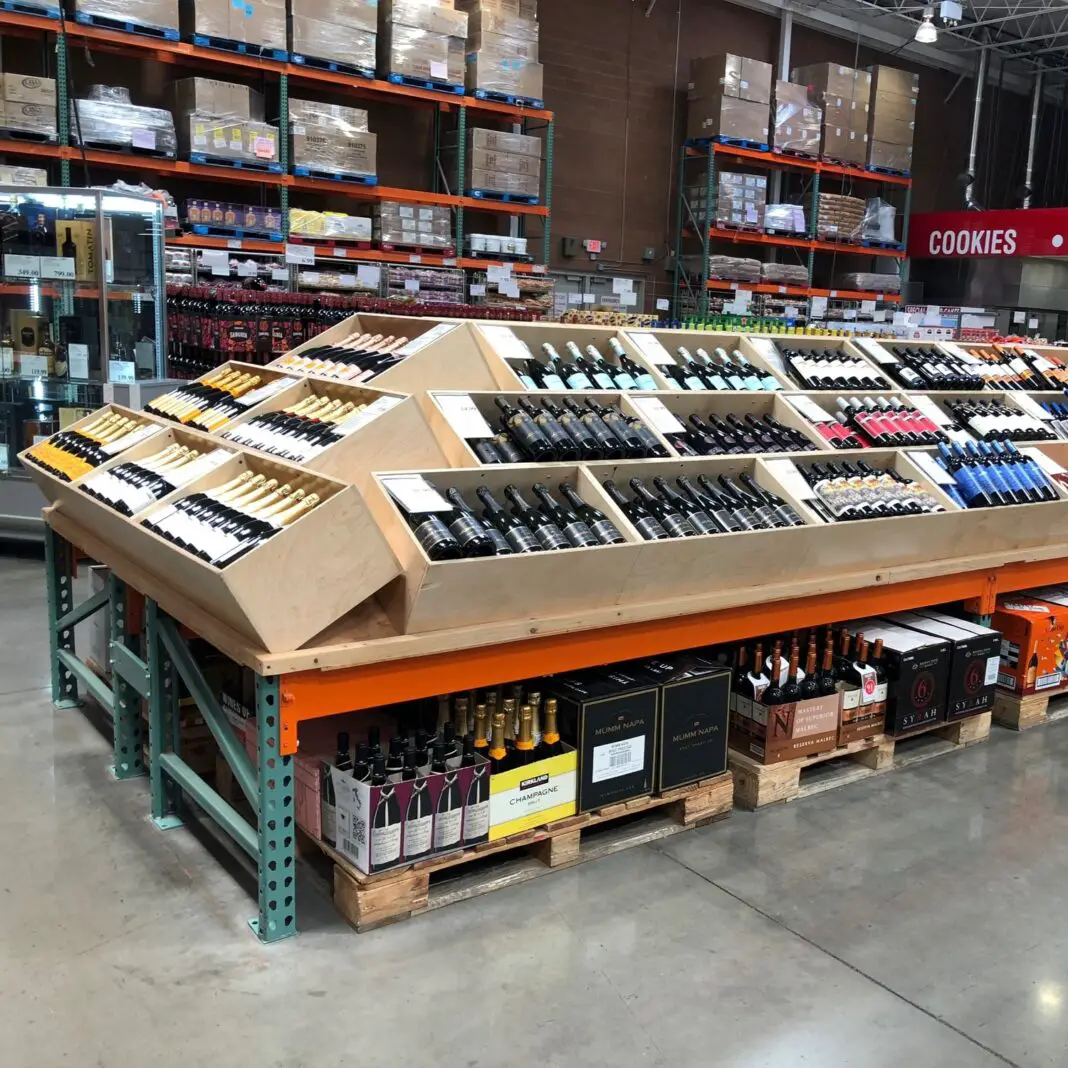In an unexpected twist, Costco, known for its bulk goods and budget-friendly prices, has taken the wine world by storm. This retail giant is now offering some of the world’s rarest wines at prices that have left both connoisseurs and casual shoppers in disbelief. The news of Costco’s discount on the coveted Screaming Eagle Cabernet Sauvignon, a luxury wine typically reserved for the elite, has sparked widespread interest and conversation among wine enthusiasts and bargain hunters alike.
1. The Screaming Eagle Surprise
Costco’s latest offering, the Screaming Eagle Cabernet Sauvignon, is making headlines. This wine, usually associated with opulence and a hefty price tag, is now accessible to a broader audience. Priced significantly lower than its average market value, Costco’s move has not only surprised shoppers but also raised eyebrows in the luxury wine industry.
The 2018 vintage of Screaming Eagle, typically listed around $4,720 per bottle, has been spotted on Costco shelves for $3,699. This price drop is not just a bargain; it’s a statement, challenging the traditional wine market’s norms and exclusivity.
Such a drastic reduction in price for a wine of this caliber is unprecedented in retail. It opens up a conversation about the accessibility of luxury goods and how big-box retailers like Costco are changing the landscape of high-end consumption.
2. The Rarity of Screaming Eagle
The rarity of Screaming Eagle cannot be overstated. Produced in limited quantities, this Napa Valley Cabernet is often considered one of the pinnacle achievements in winemaking. Its exclusivity is not just about the price but also about the limited availability, often making it a collectors’ item more than just a consumable.
With a waiting list stretching over a decade, acquiring a bottle of Screaming Eagle is a feat in itself. Its presence in Costco is not just a shock due to the discounted price, but also because it breaks the barrier of availability that has long surrounded this wine.
This move by Costco may redefine how rare wines are distributed and purchased, potentially opening new doors for wine enthusiasts who previously could only dream of owning such a prestigious bottle.
3. Impact on the Wine Market
The impact of Costco’s decision on the wine market is profound. It questions the traditional pricing and distribution models of luxury wines. By making such a rare wine more accessible, Costco is not just offering a deal; it’s challenging the status quo of the wine industry.
This bold move could potentially cause ripples throughout the wine market, influencing how rare wines are priced and sold. It also puts pressure on other retailers and wineries to reconsider their pricing strategies and accessibility.
Costco’s strategy might lead to a democratization of luxury wine consumption, making high-end wines more accessible to a broader audience and possibly changing consumer perceptions and expectations.
4. Consumer Reactions
The consumer reaction to this unprecedented offer has been overwhelmingly positive. Wine enthusiasts, previously daunted by the price and exclusivity of Screaming Eagle, are now flocking to Costco stores, hoping to snag a bottle of this elusive wine.
This surge in interest is not just about the wine itself but also about the opportunity to participate in a segment of luxury that was previously inaccessible to many. It’s a testament to the allure of exclusivity and the power of a good deal.
However, some traditionalists in the wine community have expressed concerns that this move could devalue the perception of luxury wines, fearing that increased accessibility might dilute the exclusivity that defines the high-end wine market.
5. The Future of Luxury Wine Retailing
Costco’s approach to selling rare wines like Screaming Eagle may signal a shift in luxury wine retailing. As big-box stores enter the realm of high-end wines, it raises questions about the future dynamics between traditional wine sellers and mass retailers.
This could lead to more competitive pricing and increased accessibility of luxury wines, potentially expanding the market and introducing these prestigious labels to new consumers.
The traditional luxury wine market may need to adapt to this new reality, where exclusivity is balanced with accessibility, and prestige is not solely defined by price and scarcity.
6. The Role of Costco in Shaping Consumer Expectations
Costco’s role in this development is pivotal. As a retail powerhouse, its actions carry significant weight in shaping consumer expectations and market trends. By offering rare wines like Screaming Eagle at discounted prices, Costco is not just selling a product; it’s influencing how people perceive value and luxury.
This move could encourage other retailers to follow suit, leading to more diverse and accessible options for consumers. It also reflects a broader trend in retail where exclusivity and affordability are no longer mutually exclusive concepts.
7. The Significance of Accessibility in Luxury Consumption
The significance of making luxury items like rare wines more accessible cannot be understated. This shift is not just about price; it’s about democratizing access to products that were once the purview of a select few. This move by Costco reflects a changing landscape in consumer culture, where luxury is becoming more inclusive.
As luxury becomes more accessible, it challenges traditional notions of what luxury means and who it is for. This democratization can lead to a broader appreciation and understanding of luxury goods, potentially fostering a more diverse and inclusive luxury market.

